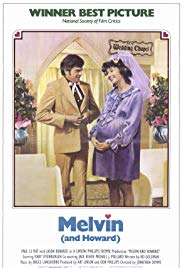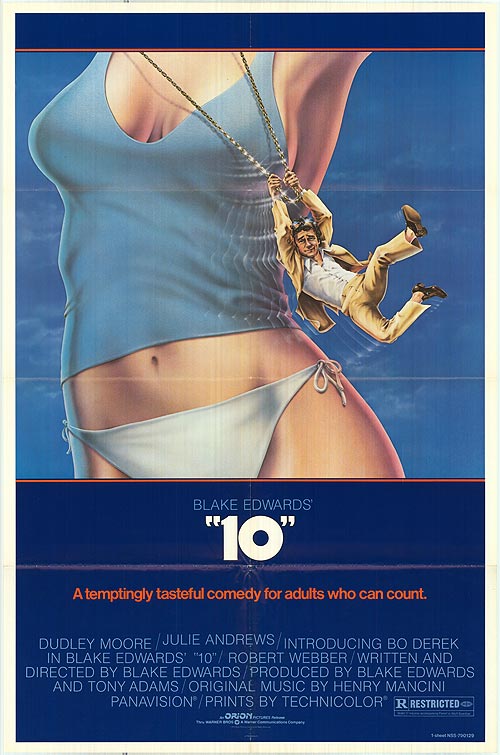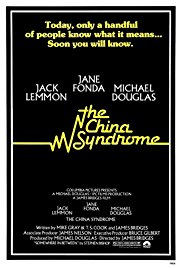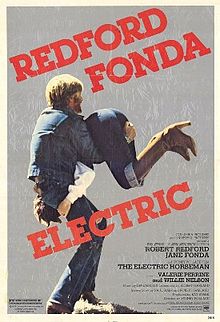Dreams vs. schemes: ‘Melvin and Howard’ is far more fun to believe than belittle
It takes 71 minutes for a will to surface in the 1980 movie “Melvin and Howard,” which continues for only 24 more minutes. If the will never existed, would we still have a movie?
Of course not. That seems a serious oversight on the part of director Jonathan Demme and likely explains why the movie finished 86th at the box office that year, according to boxofficemojo.com. (It did, somehow, beat “Kagemusha,” one of the greatest films ever made, as well as “Heaven’s Gate,” one of the biggest busts.) Pauline Kael conceded that, though she liked the film, “it has no plot.” Demme’s production insists on the notion that Melvin Dummar’s life is more interesting than a notorious court battle. That’s why “Melvin and Howard” cannot be considered a great film, but there’s just enough “there” there to scrape pop-culture gold.
Howard Hughes requires not just a Wikipedia page but a database. He died (presumably) in 1976 but remains a source of fascination in the 2000s. Several prominent filmmakers in this century have tackled parts of his story, from Martin Scorsese and Leonardo DiCaprio’s 2004 “The Aviator” to Lasse Hallström and Richard Gere’s 2006 “The Hoax,” and even Warren Beatty’s “Rules Don’t Apply,” a curious examination of Hughes’ treatment of women.
Attracting an audience for “Melvin and Howard” includes the assumption that everyone knows who Hughes is (in 1980, that was largely true). Did everyone know who Melvin was? Dummar died at 74 in December 2018. It’s doubtful many remembered his name or the Mormon Will. Kael described the Melvin character as a “chucklehead” and praised Demme for showing “perhaps a finer understanding of lower-middle-class life than any other American director.” Dummar didn’t see it quite the same way, complaining he was portrayed as “a dumb hillbilly hick.”
But Kael also noted that Dummar appeared on “Truth or Consequences,” “The Dating Game” and, four times in five years, his apparent favorite, “Let’s Make a Deal.” Dummar isn’t a representative sample of blue-collar America; he’s a pop-culture freak on steroids.
Movies are about escapism. The appeal of “Melvin and Howard,” what must’ve intrigued Demme, is the same appeal as lottery tickets — that maybe we can achieve enormous fortune or fame not from our daily business but some fluke stroke of grace that requires no work. That someone like Dummar would report a link to someone like Hughes is not a surprise. Wills are a perpetual subject of scam artists, however, the rigorous legal process makes most fraud attempts counterproductive. Few Americans are considered as reclusive or eccentric or capable as Hughes, not even Elvis. A fertile imagination could easily entertain all kinds of Hughes stories the way some feel about the JFK assassination, and there’s really no way to disprove them. This was before cellphones and surveillance cameras. Did Melvin Dummar actually give Hughes a ride in 1967? (And what happened to the motorcycle?) Did someone really drop off a Hughes will clandestinely at Dummar’s gas station? Hard to believe, but Kael seemed to think, maybe yes: “the Hughes bequest did seem just like another one of Dummar’s dreams, though it probably wasn’t.”
Hughes was a Hollywood mogul who dated starlets; he was an aviation pioneer and a Vegas kingpin. But it’s only his monstrous wealth, belied by his ragged appearance, that intrigues in “Melvin and Howard.” The title is a trick. It implies a buddy film. There is virtually nothing in this movie about “Howard,” an approach Roger Ebert curiously calls “genius.” Did audiences feel taken and tell their friends? Kael warned that it lacks “a hard-sell scene” and that “the very people whom it’s about ... may not be tempted to see it.”
But Oscar voters did, and in this category, “Melvin and Howard” seriously overachieved. Mary Steenburgen collected a statue for supporting actress. Her character has nothing to do with Howard Hughes and, just when we think she’s always going to give Melvin another chance, she cuts the cord. Steenburgen, who defeated Cathy Moriarty (“Raging Bull”) and Eileen Brennan (“Private Benjamin”) among others, won not for twice walking out on Melvin or cautiously tap-dancing to “Satisfaction” but for shucking her skimpy costume and parading naked through a strip bar when it was clear Melvin wasn’t going to let her succeed at this. It’s odd, frankly, that the movie gets or needs an R rating given that Melvin is just a game-show freak who overspends and otherwise practices clean living.
The movie’s other Oscar winner was screenwriter Bo Goldman, credited by Kael for researching central figures in Dummar’s life. Goldman’s work beat films including “Brubaker,” “Fame,” “Private Benjamin” and “My American Uncle” in the “original” category. Jason Robards, who plays Hughes, had in recent years been racking up Oscar wins and received a nomination here but lost to Timothy Hutton of “Ordinary People.” Kael gushed about Robards, but something about his character here is too conventional. It’s more plausible that Hughes would believe Melvin to be an alien, not concerned about Melvin’s employment. Kael insists that while Robards’ screen time is minimal, Hughes “suffuses” the film, but actually, it’s a quick fade into Melvin’s everyday problems, and the movie would pack more punch by eliminating Robards, barely depicting the supposed ride as the afterthought it probably was for Dummar and surprising viewers with the will when it needs to.
Left off the Academy Awards ledger was star Paul Le Mat, whose most memorable role is John Milner in “American Graffiti.” Le Mat has a face that resembles a young Glen Campbell, which is appropriate, because Demme seems oddly fascinated with turning “Melvin and Howard” into a country-music tale along the lines of “Urban Cowboy” and “Honeysuckle Rose,” two films that premiered a few months earlier. “Melvin and Howard” gives itself multiple times the same songwriting challenge as a scene in “10”: an amateur has to perform music that is not very good, but we have to believe there’s something sweet about it. (Robards is given top billing over Le Mat under the caveat of order of appearance.)
Filling time in a short film, Demme also milks every smidgen of possible drama from a Vegas wedding, by two people who have already been married but for some reason have to kiss a bunch of strangers.
Like 2014’s “Foxcatcher” and the 2016 “Christine,” “Melvin and Howard” is about a person who would never merit a movie except for one key event near the end. If “Melvin and Howard” had a happy ending, it would be the financial equivalent of “Being There.” The Mormon Will and Dummar’s connection were already a national joke by the time the film premiered. A court had shot down the will in 1978, but into the 1980s, Dummar was still trying to prove himself, even appearing on F. Lee Bailey’s show “Lie Detector” and flunking a polygraph.
Apparently, Demme wasn’t convinced either. Dummar told a writer in the early 2000s that Demme liked the way he acted in his lone scene and actually told him he “might have a future in Hollywood.”
But that proved the limit of their collaboration. “I don’t know why he didn’t call,” Dummar said.
Demme is still alive and won’t have to remember Dummar in his will.
The New York Times’ obituary for Dummar says he “is survived by his wife, Bonnie (Bonneau) Dummar; two children; two stepsons; and a number of siblings, grandchildren and great-grandchildren.” Hopefully, anything that’s left to them is notarized.
People love to dream and, despite an overpromising premise, some may be happy to give Melvin’s backstory its due. Many others will wish, like “Howard Hughes,” that he had just dropped them off at the Sands.
2 stars
(December 2018)
“Melvin and Howard” (1980)
Starring Jason Robards
as Howard Hughes
♦
Paul Le Mat
as Melvin Dummar
♦
Elizabeth Cheshire
as Darcy Dummar
♦
Mary Steenburgen
as Lynda Dummar
♦
Chip Taylor
as Clark Taylor
♦
Melvin E. Dummar
as Bus Depot Counterman
♦
Michael J. Pollard
as Little Red
♦
Denise Galik
as Lucy
♦
Gene Borkan
as Go-Go Club Owner #1
♦
Lesley Margret Burton
as Go-Go Dancer
♦
Wendy Lee Couch
as Go-Go Dancer
♦
Marguerite Baierski
as Go-Go Dancer
♦
Janice King
as Go-Go Dancer
♦
Deborah Ann Klein
as Go-Go Dancer
♦
Theodora Thomas
as Go-Go Dancer
♦
Gloria Grahame
as Mrs. Sisk
♦
Elise Hudson
as Rocky — Easy Street Singer
♦
Robert Ridgely
as Wally ‘Mr. Love’ Williams
♦
Susan Peretz
as Chapel Owner
♦
Robert Wentz
as Justice of the Peace
♦
Hal Marshall
as Hal
♦
Naida Reynolds
as Woman Witness
♦
Herbie Faye
as Man Witness
♦
Charles Napier
as Ventura
♦
Jack Kehoe
as Jim Delgado
♦
Pamela Reed
as Bonnie Dummar
♦
Sonny Davis
as Milkman George
♦
Brendan Kelly
as Milkman Ralph
♦
Danny Tucker
as Milkman Pete
♦
Shirley Washington
as Patient Debbie
♦
Cheryl Smith
as Patient Ronnie
♦
Jason Ball
as The Bait Brothers
♦
Darrell Devlin
as The Bait Brothers
♦
Danny Dark
as Easy Street Announcer
♦
Linda Cardoso
as Easy Street Model
♦
Melissa Prophet
as Easy Street Model
♦
Garrie Kelly
as Easy Street Model
♦
John Thundercloud
as Chief Thundercloud
♦
Martine Beswicke
as Realty Agent
♦
Charlene Holt
as Mrs. Worth
♦
Melissa Williams
as Sherry Dummar
♦
Antony Alda
as Terry
♦
James Lyle Strong
as Gas Station Customer
♦
Rick Lenz
as Lawyer
♦
Gary Goetzman
as Melvin’s Cousin Fred
♦
John M. Levin
as Reporter
♦
Kathleen Sullivan
as Reporter
♦
Jack Verbois
as Holdup Man
♦
Robert Reece
as Lynda’s Husband
♦
Joseph Ragno
as Maxwell — Attorney #1
♦
John Glover
as Freese — Attorney #2
♦
Joseph Walker Jr.
as Attorney #3
♦
Dabney Coleman
as Judge Keith Hayes
♦
Charles Horden
as Bailiff
Directed by: Jonathan Demme
Written by: Bo Goldman
Producer: Don Phillips
Producer: Art Linson
Associate producer: Terence Nelson
Music: Bruce Langhorne
Cinematography: Tak Fujimoto
Editor: Craig McKay
Casting: Michael Chinich
Production design: Toby Rafelson
Set decoration: Bob Gould
Makeup and hair: Toni Walker, Dorothy Pearl
Unit production manager: Terry Nelson
Stunts: Richard E. Butler, Jeannie Epper, Donna Garrett, Robert Herron, Alex Plasschaert, Walter Robles, Bob Terhune, Chuck Waters, Henry N. Wills
Special thanks: Ron Bayless, Louis Bertini, Morgan Cavett, Roger Dutson, Jan Gregson, Judge Keith Hayes, Charles House, Bessie Jackson, J.J. Johnson, Richard D. Keefe, Dan Keyes, Annemarie Korzeniowski, Geraldine Roberts





